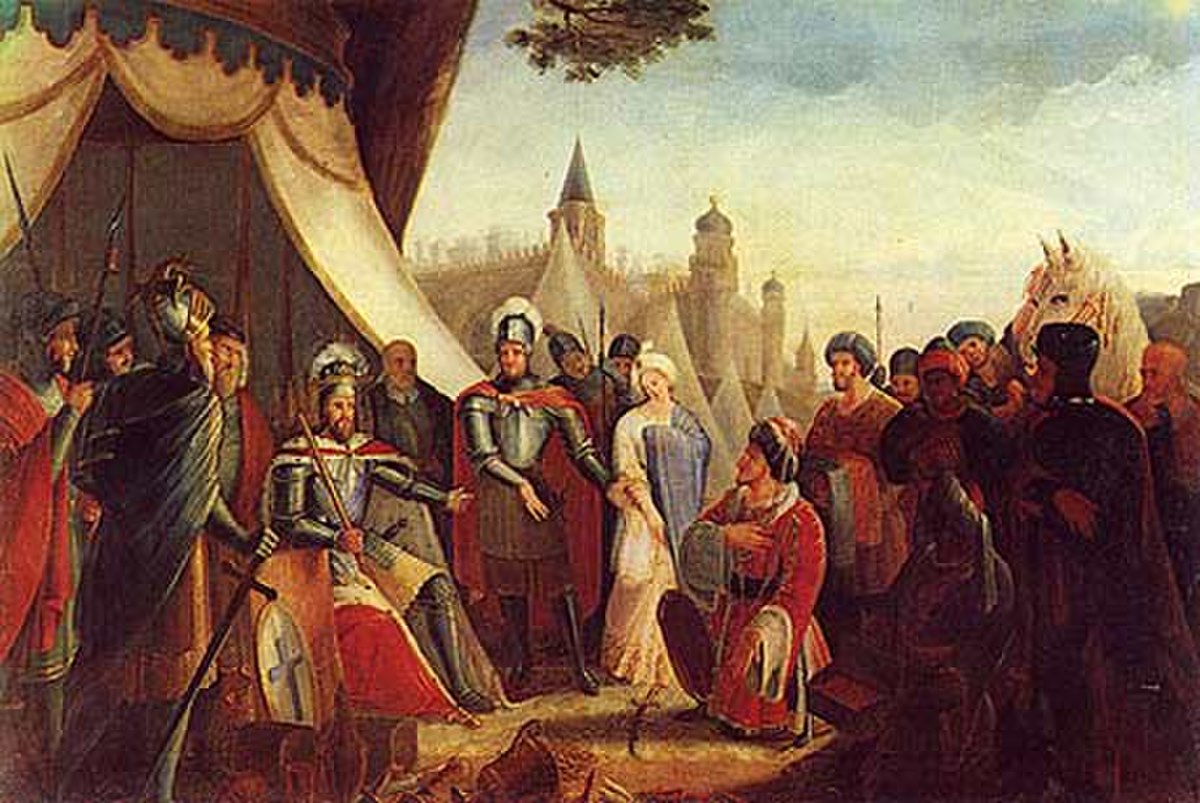
Second Crusade
Iberian PeninsulaThe Second Crusade was started in response to the fall of the County of Edessa in 1144 to the forces of Zengi. The county had been founded during the First Crusade (1096–1099) by King Baldwin I of Jerusalem in 1098. While it was the first Crusader state to be founded, it was also the first to fall.
The Second Crusade was announced by Pope Eugene III, and was the first of the crusades to be led by European kings, namely Louis VII of France and Conrad III of Germany, with help from a number of other European nobles. The armies of the two kings marched separately across Europe. After crossing Byzantine territory into Anatolia, both armies were separately defeated by the Seljuk Turks. The main Western Christian source, Odo of Deuil, and Syriac Christian sources claim that the Byzantine Emperor Manuel I Komnenos secretly hindered the crusaders' progress, particularly in Anatolia, where he is alleged to have deliberately ordered Turks to attack them. However, this alleged sabotage of the Crusade by the Byzantines was likely fabricated by Odo, who saw the Empire as an obstacle, and moreover Emperor Manuel had no political reason to do so. Louis and Conrad and the remnants of their armies reached Jerusalem and participated in 1148 in an ill-advised attack on Damascus, which ended in their retreat. In the end, the crusade in the east was a failure for the crusaders and a victory for the Muslims. It would ultimately have a key influence on the fall of Jerusalem and give rise to the Third Crusade at the end of the 12th century.
While the Second Crusade failed to achieve its goals in the Holy Land, crusaders did see victories elsewhere. The most significant of these came to a combined force of 13,000 Flemish, Frisian, Norman, English, Scottish, and German crusaders in 1147. Travelling from England, by ship, to the Holy Land, the army stopped and helped the smaller (7,000) Portuguese army in the capture of Lisbon, expelling its Moorish occupants.
